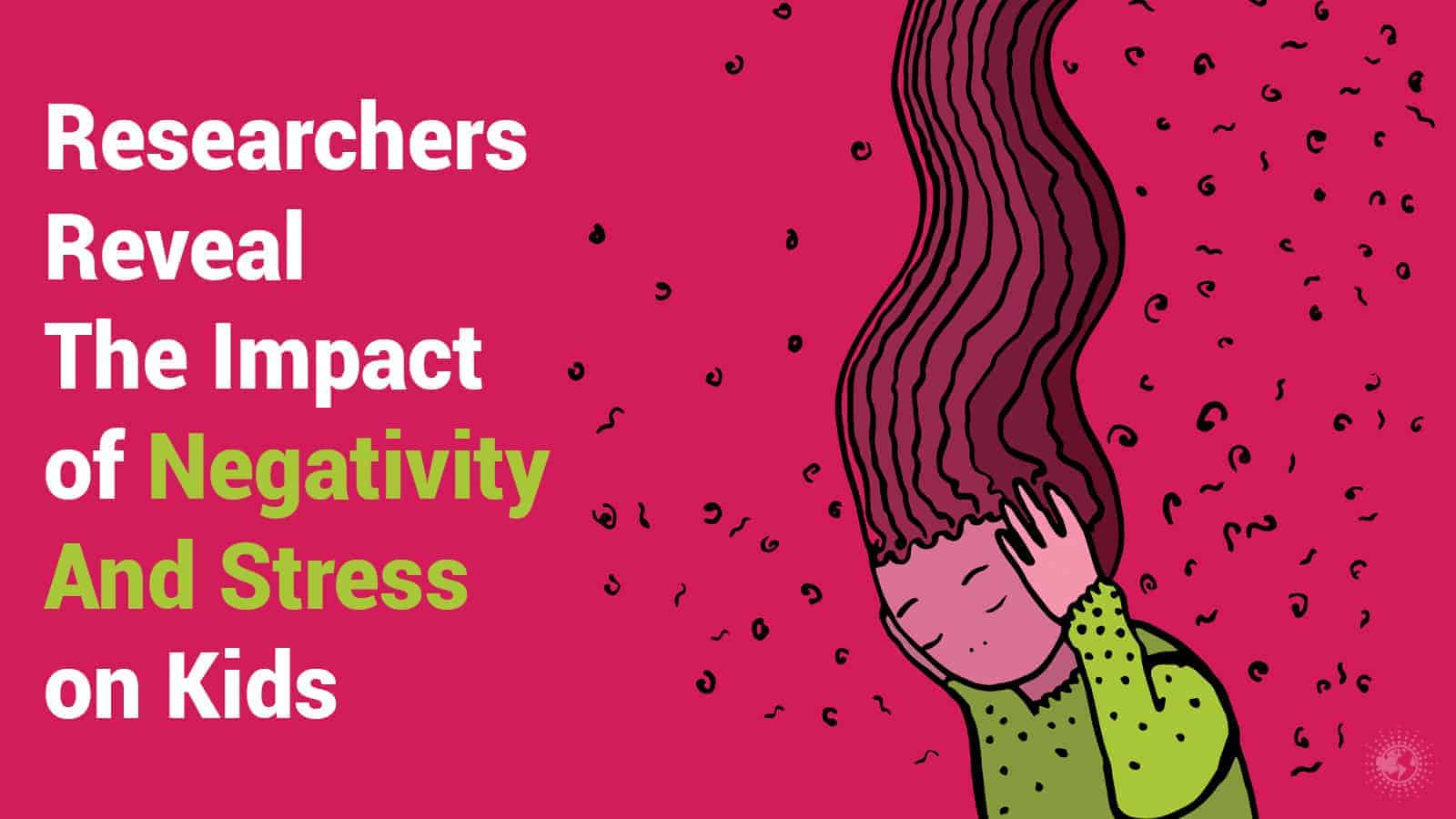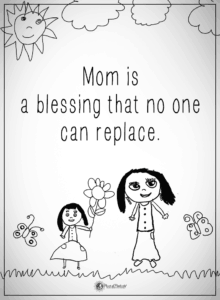It’s a common misconception that stress does not significantly affect children. This statement couldn’t be further from the truth. Children who experience negativity and stress early on in life don’t just temporarily suffer. They could develop health problems of all kinds that follow them well into adulthood.
But how does this work? Why do these issues impact kids so severely? Don’t kids retain little to no memories before the age of 4? To clear things up and answer your burning questions, here is how researchers reveal the long-term impact of negativity and stress on children.
1. Stress and Children
Researchers sought answers about the harmful effects of stress over the years. We are all now well-aware of the many consequences of being exposed to stress and negativity, especially over a prolonged period. But most of the most widely publicized studies focus on adults – and that does a good deal of disservice to research done into childhood stress.
Parents and guardians will often try to shield their children from the negativity in the world as much as possible. This can often involve trying to protect them by blocking out their knowledge of stressful events, such as the ongoing COVID-19 pandemic. This means that, to some degree, we are aware of the fact that stress is bad for children.
At the same time, many adults also believe that kids will forget about stressful situations quickly. This includes domestic fights or violence, the deaths of loved ones or pets, illness involving family members, and similar scenarios. But do they not know what’s going on? Will they forget?
Unfortunately, more and more science is revealing that though children may not remember all the details of adverse events – or understand what they remember – they are still able to perceive them as unfavorable and experience stress as a result. This stress, as it turns out, can be harmful in the long run.
2. The Formative Years
Most experts now agree that the earliest years of our lives are some of the most important. And, some of the first experiences of an individual will vary significantly shape who they become as an adult – and even what their health will be like.
One of the most significant factors that influence a child’s future is now recognized to be stress. This vital mechanism, when left unchecked in childhood, can dramatically change the wellbeing and overall health of that person in the future.
Examples of stress that can be present in a child’s life include overly strict or harsh parenting, neglect, abuse, and more, and the child who experiences these stressors can grow up to carry on the negative cycle with their children. Even below the age of three, these factors can affect a child. In-utero stress has adverse effects on children, not yet born!
3. Studies That Indicate The Impact Of Negativity and Stress On Children
As we’ve previously mentioned, research has shed plenty of light on what happens to kids who are exposed to toxic levels of stress in early life. Here are some studies that have found answers as to the long-term impact of adverse circumstances on children:
· Disturbances Of Attachment And Parental Psychopathology In Early Childhood
This study was published in the Child and Adolescent Psychiatric Clinics of North America journal in 2010. It reaffirmed the concept of attachment theory and urged proper psychological evaluation of parents, guardians, and children, as well as the relationship between children and their caregivers. Interventions are more essential to be provided to caregivers in this scenario, as encouraging guardians to be more supportive and parental to their children boosts the social relationship between them and their child as well as the child’s wellbeing.
· Early Life Programming As A Target For Prevention Of Child And Adolescent Mental Disorders
This study was published in the BMC Medicine journal in 2014. It found that the mental and emotional state of pregnant women could affect the development of their developing babies. Adverse mental health could produce neurotic and teratogenic factors that could result in psychiatric disorders in the resulting children and teenagers.
· Early-Life Stress and Adult Inflammation
This study was published in the Current Directions in Psychological Science journal in 2014. It found that toxic stress or prolonged stress experienced in the early stages of life, including childhood, could add risk factors to inflammation in adulthood. This inflammation puts the adults in question at a higher risk for severe physical health conditions.
· Effects of Stress and Negativity on the Developing Brain
This study was published in the Cerebrum journal in 2011. It found that uneven or chaotic behavior and emotional tone in parenting and family life could result in impairment of a child’s emotional regulation and self-control later in life. Conversely, supportive care from parents, provided consistently, provides a child with a sufficient foundation for positive development over time.
· The Lifelong Effects of Early Childhood Adversity and Toxic Stress
This study was published in the Pediatrics journal in 2012. It drew multiple damning conclusions, including linking maternal health to prenatal stress responses in children that could have lifelong effects. It also showed how the architecture of the brain is shaped by a mix of predisposition via genetics and the influence of the environment around a growing child. Toxic stress specifically disrupted the development of the architecture and even derailed the development of regulatory systems and organ function.
· Parent Psychological States Predict Changes in Inflammatory Markers in Children With Asthma and Healthy Children
This study was published in the Brain, Behavior, and Immunity journal in 2008. Its findings suggested that children are not only aware of and sensitive to the psychological negativity of their parents but also that they can internalize that lack of positive thinking and have it manifest in their biology. This is seen through higher inflammatory markers noticed in children around distressed parents, which could lead to higher morbidity rates later in life.
· The Science of Early Life Toxic Stress for Pediatric Practice and Advocacy
This study was published in the Pediatrics journal in 2013. This study reaffirms previously believed knowledge that toxic stress is harmful to children and urges pediatricians to learn to identify signs of this stress in their patients to intervene.
4. The Physical Response Of Stress
When you think of “stress,” you might attach mental health and psychological states to the word. What you may forget is that stress, especially in the case of its impact on children, refers to the physical responses of a child’s body to unfavorable, complicated, or negative situations.
To protect themselves, when a child (or anyone of any age) perceives a specific circumstance as threatening, frightening, or challenging, the body releases several different chemicals and triggers a few responses. This affects:
- Metabolism
- Heart rate
- Blood pressure
- Nervous system response
- Hormones
When needed, these changes are beneficial and have nothing but positive benefits. They help you to overcome stressful and dangerous situations and survive difficult times. Unfortunately, frequent triggering of these chemical processes – a “stress response” – does quite the opposite.
Children are still developing their stress responses. When that response is triggered too often, it stops being well-tuned and becomes impaired. This can cause excessive stress responses akin to a traumatic stress disorder. It can also cause the opposite – a too-low stress response that doesn’t fire when needed.
Children who have their stress responses triggered too often early in life can develop serious health problems in their adult lives. This includes:
- Cardiovascular disease
- Diabetes
- High blood pressure
- Obesity
- Depressive disorders
- Anxiety disorders
- Post-traumatic stress disorder
5. Is All Childhood Stress Dangerous?
We’ve harped pretty hard on childhood stress and its dangers – but is it all bad? First, let’s consider the three types of stress, which are as follows:
· Type One: Positive Stress
Positive stress is a “healthy” and completely normal stress response. In children, it is entirely essential and necessary for proper development. These types of reactions are mild, not frequently triggered, and don’t last for a long time. Usually, children who receive parental support and protection while experiencing stress are experiencing positive stress. This allows them to get mentally stronger and gain resilience, intelligence, and motivation while positively learning new things.
· Type Two: Tolerable Stress
Tolerable stress refers to slightly more frequent and severe stress responses that last longer than positive stress. This means that the triggered chemical responses have the chance to have negative effects on the brain. This type of stress refers to things like the passing away of someone close to you, the divorce of your parents, or something similar. In most cases, once the problem is removed or lessened, the brain can recover to a certain degree. In children, that can be more difficult, but with supportive relationships and guidance, it is possible.
· Type Three: Toxic Stress
This type of stress is the most dangerous and harmful. It refers to a long activation of biochemical stress responses, often with the result of the body being unable to recover. Usually, in children, this type of stress comes about due to a lack of support from guardians or parents. Parents and guardians with mental disorders, substance abuse, and aggressive or negative behavior can predispose a child to develop toxic stress.
The kind of stress we’ve bashed most today is toxic stress. Positive stress, on the other hand, can be helpful. It’s a standard part of a child’s development, teaching them to think, overcome problems, and face obstacles head-on.
Tolerable stress, while not favorable, is usually unavoidable. Protecting a child when they experience tolerable stress is key to preventing it from developing into toxic stress later on. Tolerable stress can also help children experience mental growth or learn mental resilience and strength as they overcome the difficulties they face with guidance and support.
 Final Thoughts On The Long Term Impact Of Negativity And Stress On Children
Final Thoughts On The Long Term Impact Of Negativity And Stress On Children
Negativity and toxic stress can have severe long-term consequences on children, but it doesn’t have to be that way. If you’re a guardian or caretaker, do what you can to ensure that the child in your care is equally protected and supported. Your aid will give them the positive thinking they need to avoid toxic stress responses!




















